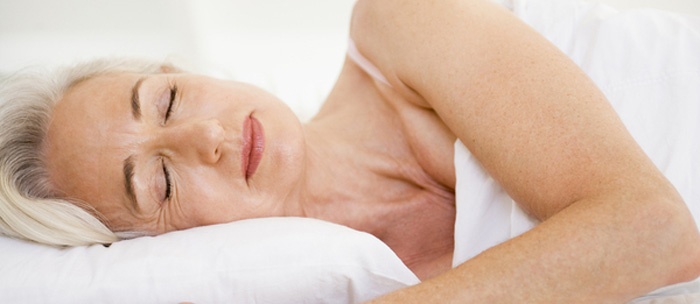 Changes in sleep are a normal part of the aging process, according to the National Sleep Foundation. However, just because they're "normal" doesn't mean they're not a cause for concern. In fact, researchers have identified a link between disrupted sleep and cognitive decline, according to NPR. Here's a closer look at this important issue, along with caregiver tips aimed at helping seniors get enough zzz's.
Changes in sleep are a normal part of the aging process, according to the National Sleep Foundation. However, just because they're "normal" doesn't mean they're not a cause for concern. In fact, researchers have identified a link between disrupted sleep and cognitive decline, according to NPR. Here's a closer look at this important issue, along with caregiver tips aimed at helping seniors get enough zzz's.Why Sleep Matters
According to the NIH, "Sleep plays a vital role in good health and well-being throughout your life. Getting enough quality sleep at the right times can help protect your mental health, physical health, quality of life, and safety."
Not only is sleep involved with supporting brain function and physical wellness, but ongoing sleep deficiency has been associated with a number of chronic illness, including everything from heart disease to diabetes. Lack of sufficient sleep has even been linked with altered activities in the parts of the brain responsible for problem-solving, controlling emotions and behaviors, and coping with change.
The NIH further connects sleep deficiency with risk-taking behavior, depression, and suicide -- already a concern for many older people.
Sleep and Seniors
The National Sleep Foundation reports that as many as 40 percent of older adults may suffer from insomnia, sleep apnea, and other sleep-related issues which may cause them to have trouble falling asleep, wake up frequently throughout the night, and are tired during the day.
Largely to blame for senior sleep habits? Changes in normal circadian sleep cycles. According to the Canadian Medical Association Journal, "Older people tend to go to sleep earlier in the evening but also to wake earlier. They may also wake more frequently during the night and experience fragmented sleep."
However, in many cases, there is an underlying medical condition causing sleep problems. For example, estrogen deficiency in older women has been linked with sleep challenges, while frequent awakenings are a common effect of certain medical conditions.
There's also a mental health link, with both sleep disturbance and sleep disruption -- including trouble falling asleep, night wakings, and sleep daytime hours -- linked with dementia.
Other common causes of sleep difficulties in seniors include Parkinson's disease, restless legs syndrome, and medication use.
Managing Senior Sleep Problems
The good news? There are some things caregivers can do to help seniors in their care sleep better.
For starters, while sleep-related problems increase with age, many physicians overlook this critical matter. Given the likelihood that there is a treatable root cause for sleepless nights, doctors can offer invaluable partnership in helping seniors rediscover healthy sleep. If medication is causing sleep disturbances, a doctor may be able to switch the prescription or adjust either the timing or dose to promote better sleep.
_600x.jpg)
Caregivers can also help seniors sleep better by encouraging them to get on a regular waking/sleeping schedule, eat meals at set times, and exercise. Sunlight is also important for regulating the sleep/wake cycle. While a walk outdoors can work wonders for sleepless seniors, even sitting in a window near sunlight can have a positive impact.
Thinking sleeping pills sounds like a simpler solution? Think again. They are not generally recommended for older adults, who may be more sensitive to side effects, such as falls and memory problems.
One last thing to keep in mind? Contrary to popular misconception, seniors don't need less sleep than younger adults -- even though they're much less likely to get enough. In understanding the sleep challenges faced by seniors and implementing strategies which address them, caregivers can help aging loved ones get the sleep they need -- and enjoy better health and enhanced quality of life in the process.
mmLearn.org offers a large library of free videos for caregivers of older adults, covering topics pertaining to senior care. Whether you are a healthcare professional or a family caregiver, if you are caring for an older adult we know that you will find mmLearn.org an essential learning and guidance tool for all of your caregiver training needs. For more useful content for caregivers, on sleep problems in the elderly and hundreds of other issues, access our database of free online caregiver videos today.
